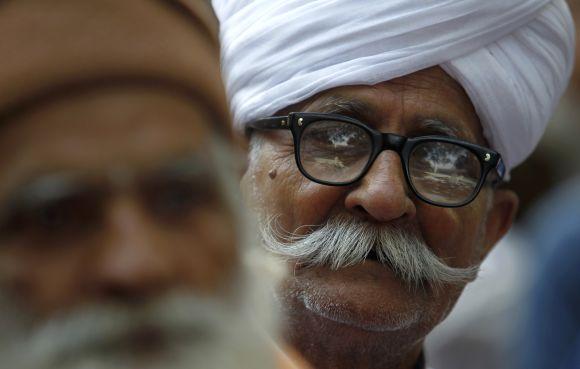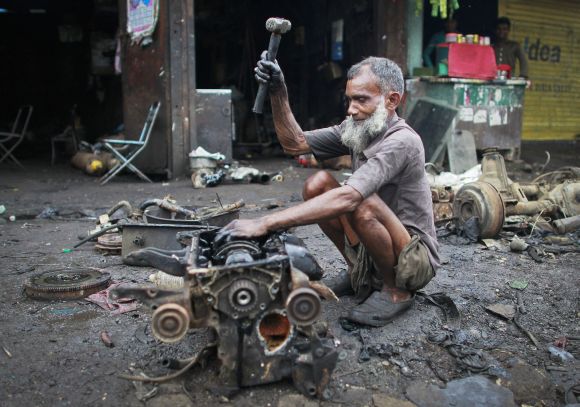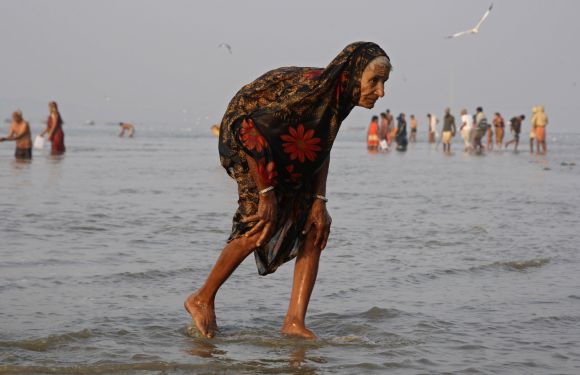
India's population is likely to increase by 60 per cent between 2000 and 2050 but the number of elders, who have attained 60 years of age, will shoot up by 360 per cent and the government should start framing policies now else its consequences are likely to take it by surprise, a UN report said.
"India has around 100 million elderly at present and the number is expected to increase to 323 million, constituting 20 per cent of the total population, by 2050," the report jointly brought out by United Nations Population Fund (UNFPA) and Help Age International said.
With an emphasis on addressing urgent concerns of elderly person worldwide like investment in pension and quality health care, the report said if these are not addressed promptly, the consequences of these issues are likely to take unprepared countries by surprise.
"In order to realise their right to enjoy the highest attainable standard of physical and mental health, elder persons must have access to age-friendly and affordable information and services that meet their demands," the report added.
...

The UNFPA in its study in India, which was conducted in seven states, found that around one-fifth of the elderly live alone or with spouses only in both rural and urban areas.
70 per cent of the elderly population is illiterate and their earning capacity in the past (during their adult years) was limited and they depended upon some productive labour work outside home for their survival.
The number of people aged 80 and above, which presently is 9,249 will increase to 44,218 by 2050, while China will have 98,339. The ratio of men per 100 at the age of 60 and 80 years will be 92 and 82 which will mean women have more life expectancy.
Of the total number of elderly, about 83 per cent men were married and only 40 per cent women, while China has 79 per cent married men and 61 per cent married women.
According to the report, by 2050, India and China will have about 80 per cent of the world's elderly living there, and India is likely to pip China in the number of centenarians.
...

In China, there are currently 14,300 centenarians, whose number is likely to increase to 2,62,500, in Japan, which already has 49,500 centenarians it is expected to increase to 617,000.
In India, the total number of centenarians are likely to be between 151,000 and 620,000, the report said.
The report, which was released in Tokyo on the International Day of Older Persons, says that of the seven billion people who live on the planet, 893 million or 12.8 per cent are elderly.
The elderly population is likely to swell by 200 million taking it well beyond one billion people, and this would put great strain on welfare and medical systems.
It also warned that the skills and knowledge older people possess was going to waste, with many elderly under-employed and vulnerable to discrimination, abuse and violence at work and in the home.
The UN report calls for governments and the public to end these detrimental practices and invest in older people.
...